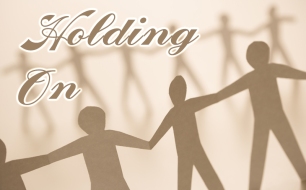
A Sunday school teacher has just concluded her lesson with the little ones and wanted to make sure she has made her point clear. And so she asked, “Can anyone tell me what you must do before you can reconcile with someone?” There was a short pause and then from the back of the room a small boy spoke up: “Fight with the person first,” he said.
Reconciliation, no matter how desirable and noble, is not always easy. Personal misunderstandings, notwithstanding communal conflicts and socio-political tensions, are oftentimes unavoidable, so that ‘mending broken relationships’ could be extremely painful and difficult, particularly when issues are not resolved or expectations and demands are not met.
Recognizing the importance of reconciliation, Jesus in today’s gospel gives us a step-by-step approach, a dynamic process of reconciling with our brothers and sisters. In resolving tenacious and enduring conflicts, emphasis is placed on the importance of seeking intermediaries, implying as the Lord did that a broken relationship or severed friendship between two people is personal, yet at the same time a community or family concern. We are in it together.
The English poet Rudyard Kipling once wrote that we all are we. He said: A family shares things like dreams, hopes, possessions, memories, smiles, frowns, and gladness… No person is ever alone who is a member of a family.”
We are all members of a family or community for that matter. There is a bond that exists between the ‘I’ and the ‘you’ that almost always merges the two together to form a ‘we’. In Facebook, there was once a feature which allowed an individual to indicate his/her “in relationship” status. We know what this means, of course. Still, in the strictest sense of the word, indicating such status is redundant, as it merely underlines the obvious. The fact that a person is on Facebook is already a confirmation that he/she is in a relationship, for Facebook is about relationships. In fact, we are all in relationships with friends, neighbors, colleagues, and others, with or without Facebook. We cannot but relate and be part of a relationship.
A husband was deeply in love with his wife. To prove his love for her, he fought the fiercest beast, swam the deepest river, crossed the widest desert, and climbed the highest mountain. In the end though, his wife left him, for he was never home.
The challenge for any relationship is to make a home in our hearts for our beloved, a devotional commitment that uplifts us and enables us to weather life’s storms. In many ways, ‘being there’ is really about recognizing what the other person is going through, and respond to his/her needs in a manner that will provide support, give strength and offer encouragement. In times of discord, ‘being there’ would be extremely difficult to keep, for both parties might not feel inclined to see the pain and struggle of the other.
In many African communities, reconciliation is often ritualized and made sacramental. Restoring peace among individuals, especially during serious conflicts between ethnic groups, necessitates a ‘transcendental’ and symbolic gesture that signifies inner spirit of forgiveness. According to African scholar Laurenti Magesa, legal norms and restorative forms of justice alone are not enough. A case in point would be the incident which occurred in Nairobi on April 2, 2008 when, as reported in East African Standard newspaper, “outraged mothers stripped bare in an effort to shame the charging police.” The mothers were protesting on behalf of their sons who were put behind bars without trial. In South Africa, mothers took to the street to apologize for the life of white American peace activist Amy Biehl, who was attacked and killed by a gang of black youth. Through a public march, the mothers expressed their indignation, claiming that Biehl was their daughter for she had done so much for their community.
The role which a person plays in reconciling individuals and communities in conflict cannot be undermined as it can be a deal-maker or a deal-breaker. But the presence of a reconciler can be inspiring, when it is taken to mean that someone cares so much that a person is willing to feel the pain of clashing parties, become their voice, and negotiate on behalf of each one.
Mediated reconciliation in this case could lead us to a deeper healing process, because the power of three or more is always greater than that of one or two. More particularly so when we make the Lord the ‘significant person’ of our reconciliation. In the gospel He assures us that “Where two or three are gathered together in my name, there I am in their midst.”
There is strength in accepting our powerlessness to resolve deep discords and stubborn disputes. There is salvation in admitting that conflicts and broken relationships, no matter how painful, are always worth mending. In many ways, God’s healing power comes to those who humble themselves before Him, embrace their helplessness, ask and grant forgiveness, and understand that the best way forward is to hold on to one another.
Thank you
By: sandra villegas on September 10, 2017
at 4:47 am